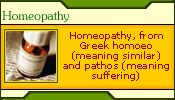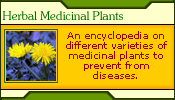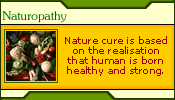|
Vitamin K is necessary for the proper clotting of blood, prevention
of bleeding and normal liver functions. It aids in reducing excessive
menstrual flow. This vitamin is contained in egg yolk, cow's milk,
yogurt, alfalfa, green and leafy vegetables, spinach, cauliflower,
cabbage and tomato. Its deficiency can lead to sufficient bile salts
in the intestines, colitis, lowered vitality and premature ageing.
Vitamin K can be produced in the intestines and this function is
improved with the presence of cultured milk, like yogurt, in the
diet, Vitamin K is classified as a fat-soluble vitamin.
Vitamin K is found in nature in two forms - K1, also called phylloquinone,
is found in plants and vitamin K2, also called menaquinone, which
can be synthesized by many bacteria. Vitamin K3, menadione, is a
synthetic form of this vitamin which is manmade.
Vitamin K is required for
Vitamin K is used in the body to control blood clotting and is
essential for synthesizing the liver protein that controls the clotting.
It is involved in creating the important prothrombin, which is the
precursor to thrombin - a very important factor in blood clotting.
It is also involved in bone formation and repair. In the intestines
it also assists in converting glucose to glycogen, this can then
be stored in the liver. There are some indications that Vitamin
K may decrease the incidence or severity of osteoporosis and slow
bone loss.
Deficiency of vitamin K
A deficiency of this vitamin in newborn babies results in hemorrhagic
disease, as well as postoperative bleeding and hematuria while muscle
hematomas and inter-cranial hemorrhages have been reported.
A shortage of this vitamin may manifest itself in nosebleeds, internal
hemorrhaging.
Dosage
The dosage underneath is the Recommended Dietary Allowance (RDA),
but be aware that this dosage is the minimum that you require per
day, to ward off serious deficiency of this particular nutrient.
In the therapeutic use of this nutrient, the dosage is usually increased
considerably, but the toxicity level must be kept in mind.
Males 80 micrograms per day and females 70 micrograms per day.
Toxicity and symptoms of high intake
Toxicity does not easily occur with normal dietary intake of this
vitamin, but can happen if synthetic compound vitamin K 3 is taken.
High to toxic uptake in the synthetic form can cause flushing and
sweating. Jaundice and anemia may also develop.
If you are taking anti-coagulant (to prevent blood clotting) medication,
consult your medical practitioner before taking a Vitamin K supplement.
Best used with
Dietary fat is necessary for the absorption of this vitamin.
When more may be required
This nutrient can be destroyed by freezing and radiation as well
as air pollution. Absorption may be decreased when rancid fats are
present, as well as excessive refined sugar, antibiotics, high dosages
of vitamin E, or calcium and mineral oils.
Enemy of vitamin K
When you are prone to bruising easily, or when pregnant you might
be in need of more Vitamin K. But be careful not to take too much
Vitamin K in the last stages of pregnancy, since it could be toxic
for the baby.
Other interesting points
Some people are of the opinion that it also promotes longevity.
Food sources of vitamin K
Vitamin K is found in leafy vegetables, cheese and liver. It is
also found in asparagus, coffee, bacon and green tea.
|


















